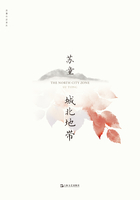1.Abbot,John,Learning Makes Sense:Recreating Education for a Changing Future (Education 2000,London,1994)
约翰·雅培,《学习有意义:为改变的未来重建教育》,教育2000年,伦敦,1994
2.Adey. P.,Shayer,M. and Yates,C.,A Teacher’s Guide to Thinking Science,The Curriculum Materials of the Cognitive Acceleration through Science Education Project Second Edition(Nelson,1995)
P·安娣,M·舍勒和C·耶茨,思维科学教师指导手册,在科学教育计划中的认知加速的课程资料,纳尔逊
3.Alkon,D.,Memory’s Voice:Deciphering the mind-brain code(Harper Collins,New York,1983)
阿尔康,D.,《记忆的声音:解密思维大脑的密码》
4.Armstrong,T.,Seven Kinds of Smart:Identifying and Developing Your Many Intelligences(Plume,New York,1993)
阿姆斯壮,T.,《七种智力:辨别和发展多重智力》
5.Barber,Michael,The Leaning Game-Arguments for an Education Revolution(Victor Gollancz,London,1997)
米歇尔·巴伯,《学习游戏-对于教育改革的争论》
6.Black,I. B. Information in the Brain:A Molecular Perspective(MIT Press,Cambridge,MA,1991)
艾拉·布莱克(Ira Black),《大脑的信息:分子透视图》
7.Bloom,B.,A Taxonomy of Educational Objectives (David Mackay,New York,1956)
本杰明·布鲁姆,《教育目标分类法》
8.Bloomsbury Thematic Dictionary of Quotations(Bloomsbury,1990)
布卢姆斯伯里,《布卢姆斯伯里字典》,1990
9.Blum,Deborah,Sex on The Brain:The Biological Differences Between Men and Women (Penguin,1997)
以莫伊.A.,吉塞尔,D.,《大脑的性别:男人和女人真正的区别》,密歇尔·约瑟夫
10.Borba,Michelle,Esteem Builders (Jalmar Press,California,1989)
米歇尔·巴伯,《尊重建立者》
11.Boulding,K.,The Image(University of Michigan Press,1966)
博尔丁.K.《想象》
12.Brown,J. A. C.,Techniques of Persuasion(Penguin,London,1983)
布朗.J. A. C.,《说明的技巧》
13.Butler,K.,Learning and Teaching Style in Theory and Practice (Columbia,The Learners Dimension,1984)
巴特勒.K.,《学习和教学的理论和实践》
14.Caine,R. N. Cane,G.,Making Connections:Teaching And The Human Brain (Asck,Virginia,1991)
R.N.凯恩,G.肯《连通教学和人类大脑》
15.Calvin,W.,How Brains Think:Evolving Intelligence Then and Now (Wiedenfield And Nicholson,The Orion Publicshing Group,London)
加尔文.W.《大脑如何思考:不时的发展智力》
16.Campbell,D. G.,Introduction To The Musical Brain (Richerdson,Texas,1983)
D. G. 坎贝尔,《音乐大脑的引进》,理查森
17.Carpenter,R. H. S.,Neurophysiology Third Edition (Edward Arnold,Hodder & Stoughton Educational)
R. H. S. 卡彭特,《神经生理学》(第三版),爱德华·阿诺德,哈德和斯托顿教育学
18.Claxton,Guy,Hare Brain,Tortoise Mind:Why Intelligence Increases When You Think Less (Fourth Estate,London,1997)
盖伊·柯莱斯坦,《乌龟的思维:为什么思考得少智力增长快》
19.Coopersmith,Stanley,The Antecedents of Self-Esteem (W. H. Freeman,California 1967)
斯坦利·库珀史密斯,《自尊的前辈》
20.Covey,Steven,The Seven Habits of Highly Effective People 卡文·史蒂文,《高效能人士的七种习惯》
20.London Borough of Croydon,Student Motivation:Findings from Qualitative Research (BMRB International,1996)
伦敦郡克罗伊登区,《学生学习动机研究》
21.Csikszentmihalyi,M.,Flow:The Psychology of Optimal Experience (Harper Collins,New York,1990)
米哈里齐克森·米哈里 (Mihaly Csikszentmihalyi),《流动:最佳经历的心理状态》,哈珀·柯林斯发行人
22.Department for Education and Employment,Excellence in Schools (HMSO,July,1997)
教育和就业部,《学校的优点》
23.Dhority,Lynn,The ACT Approach:The Use Of Suggestion For Integrative Learning (Gordon And Breach,MIT,1991)
林恩·道瑞特,《ACT途径:综合化学习的使用建议》
24.Diamond,M.,Enriching Heredity:The Impact Of Environment On The Anatomy Of The Brain(Free Press,New York,1988)
玛丽亚·戴蒙,《富足的遗产:有关大脑解剖的环境影响》














